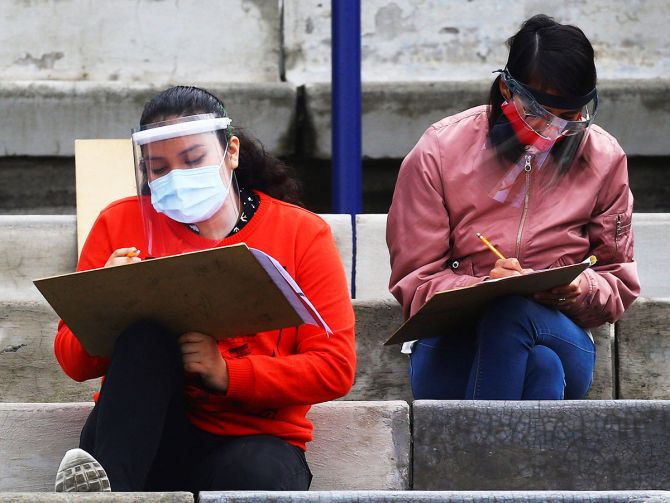
The recently concluded JEE Main (the qualifying entrance examination for admission into the IITs and NITs) proved to be a game changer for students, parents and facilitators across India.
Based on the results of the JEE-Mains Paper 1 and Paper 2, over 2 lakh candidates will be eligible to appear for the JEE-Advanced exam, which is a one-stop exam to get admission into the 23 premier Indian Institutes of Technology.
JEE Advanced will be held on September 27, 2020 and October 8, 2020.
As students proceed towards the last leg of their preparations for the upcoming JEE Advanced, here are 10 tips to keep in mind before and while appearing for the exam:
1. Once a student qualifies for JEE advanced, s/he should not waste time in discussing ranks and colleges based on JEE main rank and instead focus on preparing for JEE Advanced considering you have just a few days left.
2. Always remember that JEE Mains is just a qualifying exam for JEE advanced.
Your JEE Main rank has nothing to do with your performance in JEE Advanced. It is best to avoid building pressure and getting distracted from the actual exam.
3. In JEE Advanced, a student need to qualify for individual subject cut off.
The next few days must be spent in revision of PCM (Physics, Chemistry and Math). It is advisable to divide your day in three slots so you can revise and master all three subjects.
4. Make a subject wise syllabus chart. Mark the chapters you revise so you’ll be able to track your progress and feel confident.
5. In JEE Main SCQ (single choice question) and numeric response questions are asked but to comply with JEE advanced, students should also practice solving MCQs (questions where you have more than one options as correct answer), comprehension based questions and 'Match the column' type questions
6. Skip those chapters which you haven't started studying. Instead focus on practicing chapters that have high chances to appear.
Solving previous year's questions can be a guide to decide relative weightage of chapters.
7. Attempt a mock test every three days switching between morning and afternoon shift to match the actual exam timings.
8. Adjust your biological clock to prepare for the big day.
Avoid studying late night and avoid sleeping during the day. Since both papers are during the day, you must get adequate night sleep to keep your mind fresh and stress-free.
9. On exam day you will have two papers. In the second paper, it is advisable to attempt that subject first which was least attempted in first paper because there are constraints to qualify individual PCM cut-off.
10. Always remember a student cannot fully solve JEE advanced paper in given time frame hence it is an exam which requires witty decision making.
You must know how to prioritise a certain set of questions and to leave the rest for later.
Also keep an eye on calculation part of questions and time given to a particular question.
Om Sharma,who has a BTech from IIT-Bombay, is an author at Pearson India.












 © 2025
© 2025